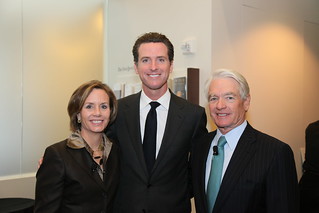Former self-proclaimed vigilante looks to finish off the CA Republican Party
by Brian Leubitz
Sometimes when you are swimming, or surfing, or generally playing in the ocean, you can be surprised by a big wave. Other times, you can see them building for miles. Asm. Tim Donnelly’s gubernatorial campaign is the latter. He’s the wave that is building miles away, ready to crash down upon California’s GOP, making the long-term fallout of Prop 187 look quaint. But, he’s in, for whatever reason:
Donnelly plans to make the announcement at a Los Angeles manufacturing facility. … The conservative Southern California Assemblyman, who earlier had announced an exploratory committee for the run, will challenge moderate former Lt. Gov. Abel Maldonado for the GOP nomination. Democratic Gov. Jerry Brown, who has not made an official announcement but is widely expected to seek a fourth term, is not expected to be challenged for his party’s nomination.
In a statement released Monday, Donnelly said he will stress three key issues in the campaign: jobs, civil liberties, and “leaving California a better place for the next generation.” (SF Gate / Carla Marinucci)
The CRP has two options next June, and neither of them are all that stunning. Maldonado’s campaign has already been through some tough times, firing campaign staffers and other such shenanigans. He’s not that great of a candidate, having already lost statewide and for Congress. But, he’s not going to offend anybody, he has a good personal narrative, and (probably) won’t embarrass the party.
Donnelly, as you can see from the Colbert Report story to the right, is a different story. His placing in the Top-2 could radically change the face of the state party. While I’ve not seen any polls, a one-on-one matchup with the Governor would be a landslide of epic proportions, and turn minorities away from the CRP for several elections to come.
Perhaps it would be hard to resist the shadenfreude, but a complete lack of an honest opposition could raise problems. Like the Calderons or other such nonsense. But, as the headline for the above post says, it should be interesting.




